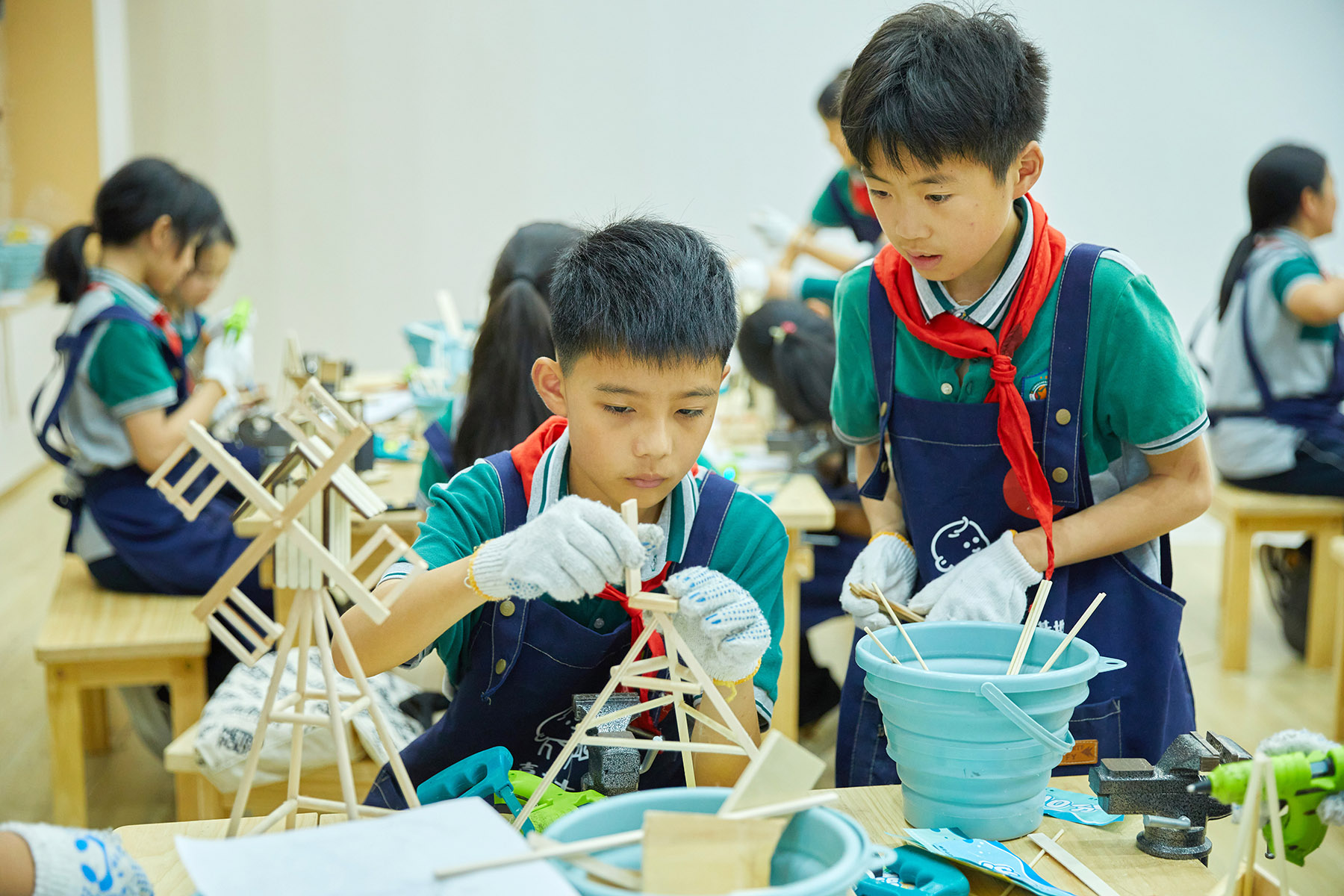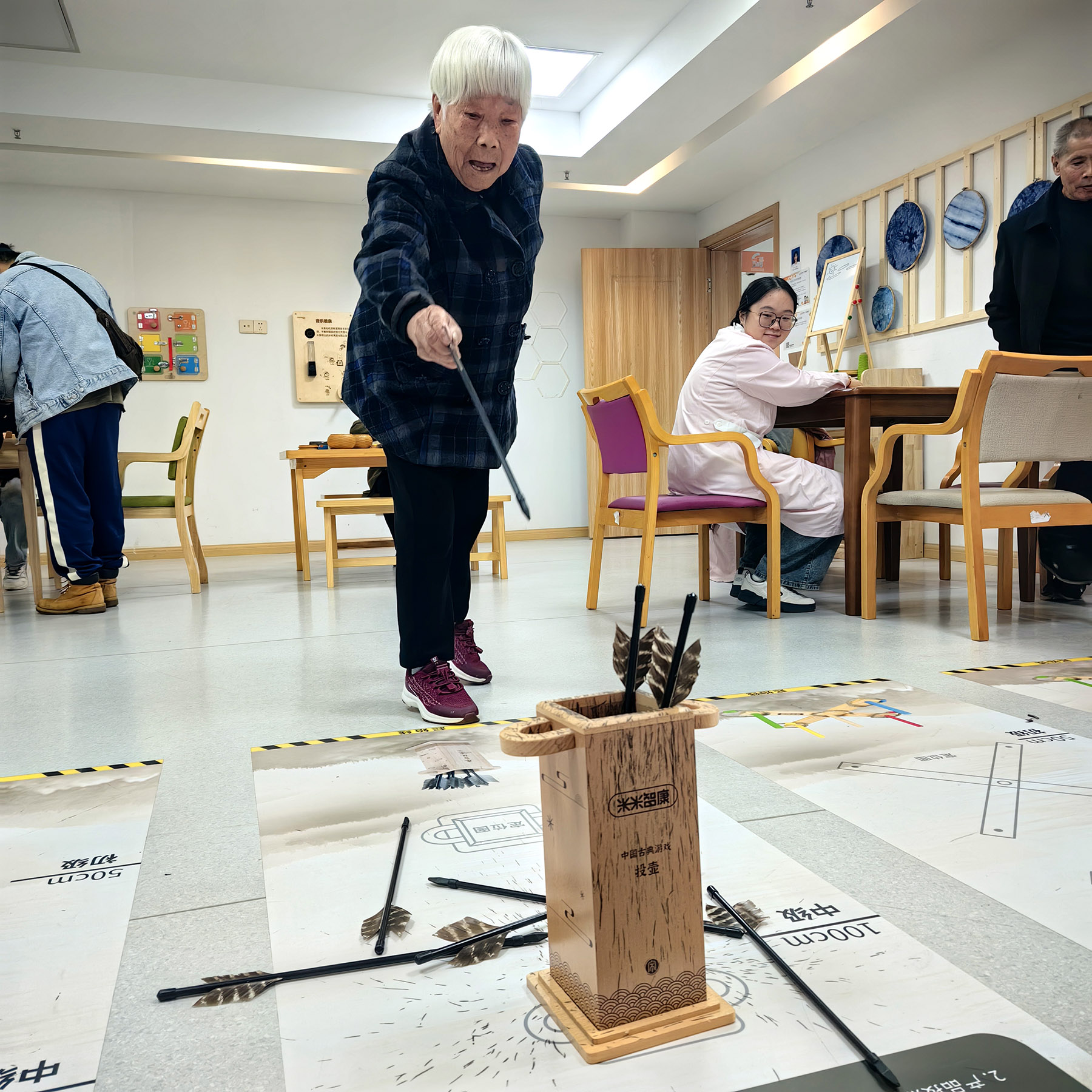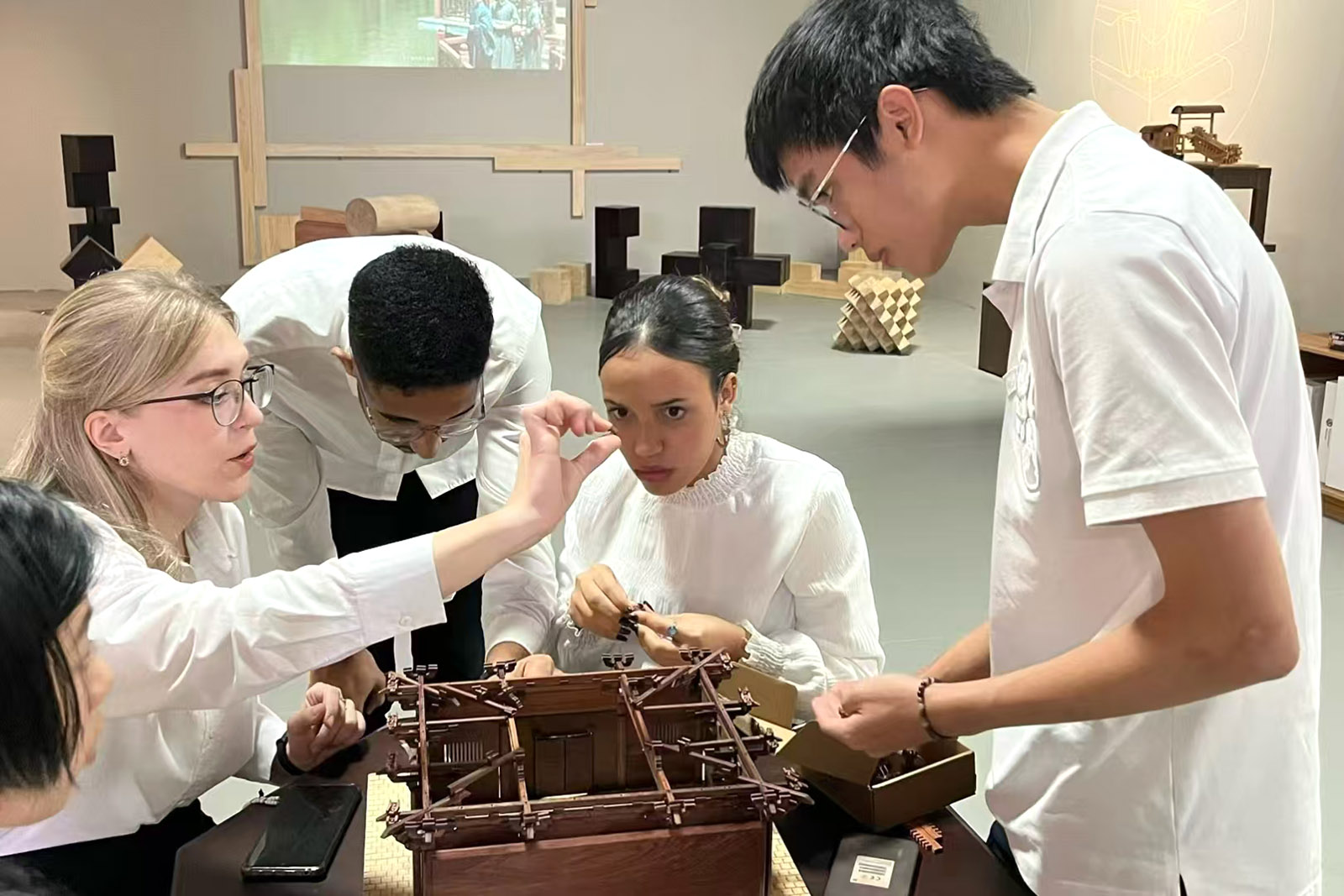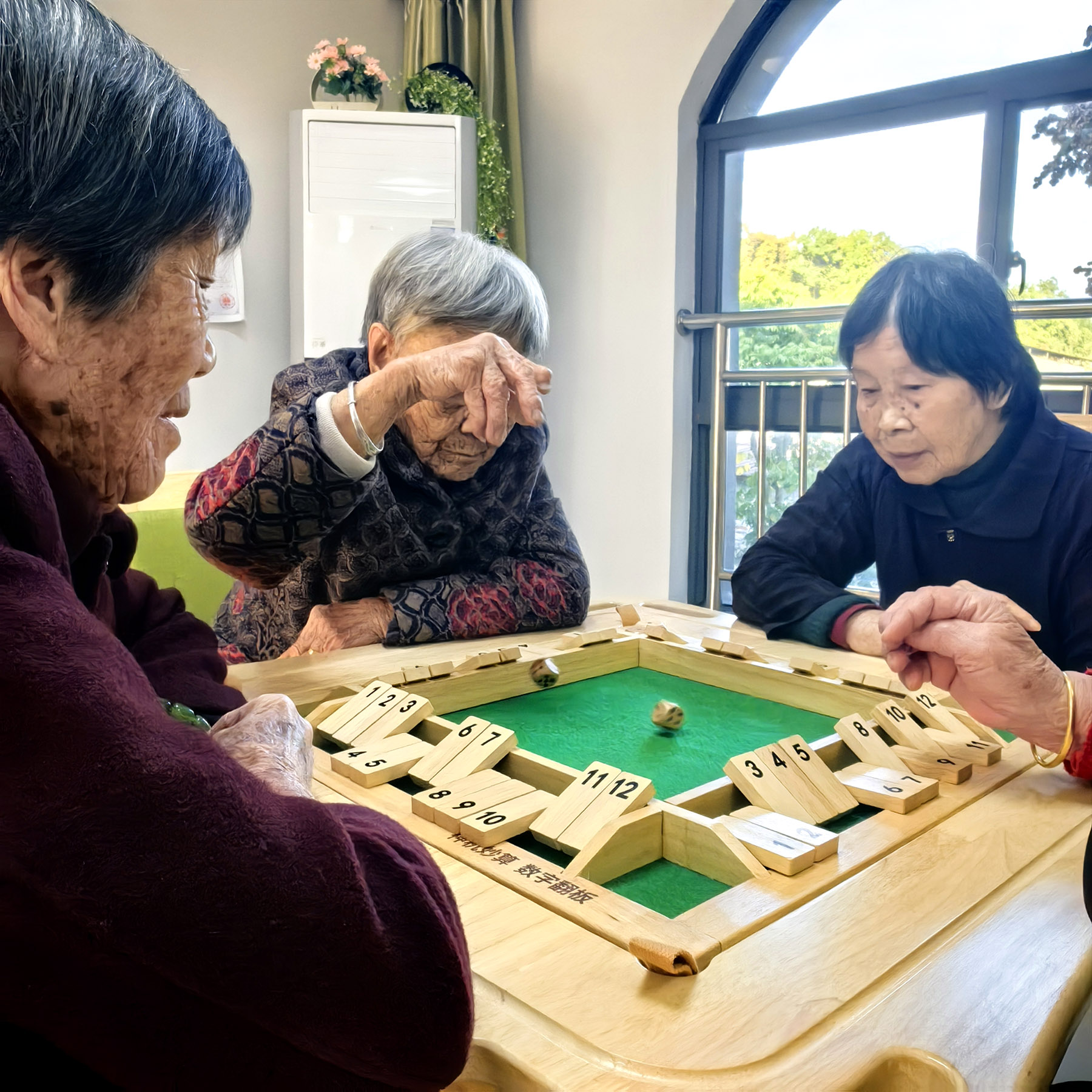Yunhe county produces 40 percent of world's supply, exports products to 82 countries and regions

In Yunhe, a mountainous county in Zhejiang province, wooden toys are more than just playthings — they are the lifeblood of the community. Among Yunhe's 126,300 residents, about one in four works in the wooden toy industry or related fields.
Wooden toys, which include blocks, puzzles, trains and educational tools, only account for 5.6 percent of China's toy market in 2023, according to Zhiyan Consulting, a Chinese market research company.
Yet, Yunhe's wooden toy industry had an impressive output value of 6.69 billion yuan ($915 million) in 2023. The county produces 40 percent of the world's wooden toy supply, with over 70 percent of its products exported to 82 countries and regions.
How did an industry with a primarily overseas market demand establish itself in a remote small town in southwestern Zhejiang?
The roots of Yunhe's wooden toy industry trace back to the Song (960-1279) and Yuan (1271-1368) dynasties when carpenters crafted traditional wooden toys like the Luban lock and tangram puzzles. This artisanal legacy laid the foundation for a booming industry.
READ MORE: Toymakers look to the past to build business
The modern era of Yunhe's wooden toy production began in the early 1970s. In 1972, Yunhe received its first wooden toy sample. By 1973, He Shouzhen, head of the Chishi Toy Factory, created a prototype wooden toy, securing the first export order for Yunhe.
"The local wooden toy industry burgeoned after the reform and opening-up, and in 2013, Yunhe was awarded the title of China's Wooden Toy City by the China National Light Industry Council," said Mao Changcai, vice-chairman of Yunhe's council for the promotion of international trade.
Today, Yunhe is home to over 1,100 wooden toy manufacturing companies, employing more than 30,000 people. "However, due to global economic slowdowns and geopolitical challenges, the output value of Yunhe's wooden toy industry declined from 7.81 billion yuan in 2022 to 6.69 billion yuan in 2023," Mao said.
"In response, we are promoting the transition from 'traditional manufacturing to smart manufacturing' in the wooden toy industry, encouraging companies to invest in R&D activities and brand building."

Pioneering innovators
Ye Chen, a 37-year-old Yunhe native, exemplifies this transformation. Growing up surrounded by relatives who ran wooden toy factories, Ye initially viewed the industry as low-end manufacturing. However, his perspective changed after he entered the industry.
After studying finance in Australia and working there for a decade, he returned to Yunhe in 2018 to join his father-in-law's wooden toy factory as the deputy manager.
"Over the past seven years, I've seen significant changes in Yunhe's wooden toy industry," Ye said. "Our factory has shifted from traditional low-end manufacturing to modernized production, with a greater emphasis on design and innovation."
Ye's factory has embraced digitalization, transforming into a 5G-enabled smart factory that leverages cloud computing, big data and the internet of things.
"Our factory now features automated and standardized equipment, making us a more modernized enterprise," said Ye.
In addition to upgrading manufacturing processes, the influx of young talent has brought new management concepts to Yunhe's wooden toy industry.
When Ye returned to Yunhe, he created Leo's Friends wooden toy brand. "Only running a factory limits what you can do, but having your own brand provides more avenues for various projects and ideas," he said.
Ye's overseas experience has helped him manage the brand's international expansion. "When our brand was first established, we sponsored a charity gala for hearing-impaired children in Australia. The event drew Australia's elites who afterward recognized our brand. This sponsorship not only increased our visibility but also highlighted our factory's capability, boosting our recognition and sales," Ye said.
Many business owners in Yunhe now have overseas study experience, which helps them understand foreign markets better and communicate more smoothly with overseas clients, according to Ye.
"We used to receive orders from Chinese foreign trade companies and were paid in renminbi. Now, we have more direct partnerships with overseas importers and brands," Ye explained.
"Currently, about 80 percent of Leo's Friends' sales are from overseas markets, including emerging markets like the Middle East and Southeast Asia."

Tapping into silver economy
Ma Dafei, born in 1974, is another Yunhe business owner who returned from studying abroad to join the wooden toy industry.
"Wooden toys have a deep connection with me. My parents were among the first group of workers at Yunhe Chishi Toy Factory, the birthplace of the local wooden toy industry. Although I didn't attend kindergarten, I often visited the toy factory and played with the wooden toys there," he said.
Ma returned to Yunhe in 2002 after studying in the United Kingdom, and started his own business. In 2006, he created his own brand, launching a series of bamboo products under the concept of eco-games, which were well-received in foreign markets.
Beyond innovating with materials, Ma also saw an opportunity to combine wooden toys with the silver economy.
"China, like Europe, the US, and Japan, is rapidly aging. So, there's a huge market in the silver economy," said Ma. "In 2019, we saw potential in wooden toys for seniors. When we showcased some samples at the Guangzhou International Elderly Health Industry Expo that year, the positive feedback we received solidified our confidence in developing these toys.
"Senior users need larger sizes and bold fonts due to larger hands and poorer eyesight. Instead of cartoon designs, seniors prefer auspicious patterns from Chinese culture," Ma explained.
"Our toys target retirees, who often suffer from loneliness, which may lead to psychological issues or cognitive decline. So, many of our products are designed for two or four players to encourage social interaction."
Ma's company collaborates with the brain health research team at Xi'an Jiaotong University's Health Science Center to study toys' impact on brain health and Alzheimer's prevention. The research shows that these toys can have a positive influence on health, said Ma.
Jiang Zhen, deputy director of the local civil affairs bureau, said that Yunhe has been integrating elderly health services with wooden toys.
"We have successfully held six consecutive provincial and municipal senior wooden toy competitions. In 2024, Yunhe established senior wooden toy experience centers in 12 elderly care institutions across the county. These toys have become quite popular among seniors," Jiang said.
"Overall, the senior wooden toy sector is still in its early stages, whether in research or market education. But the future potential, both domestically and internationally, is enormous," Ma added. "Last year, we visited elderly care institutions in Europe and found that their needs are similar to those in our domestic market. We brought some of our senior wooden toys there, and they were well-received. We have already seen exports of our senior wooden toys to Europe and Japan."

Fresh perspective
Meng Jie, a 38-year-old entrepreneur, is another example of Yunhe's innovative spirit. Unlike Ma, she aims to expand the wooden toy market beyond the infant to 6-year-old age group by targeting the people age 18 to 39.
"The 18-39 market is hard to cater to, but lucrative. The products must align with the mainstream aesthetic tastes of first-tier cities," said Meng, general manager of Yun Chuangxiang Co.
Meng first connected with Yunhe during an internship while studying toy and game design at Guangdong University of Finance and Economics. After graduating, she worked in various toy-related jobs in Guangdong province and Beijing. Her passion for wooden toys never waned, prompting her to return to Yunhe to start her own business in 2020.
"In late 2023, we started making wooden cultural and creative toys in Yunhe, after noticing a gap in the local wooden toy souvenir market. Distinctive cultural and creative design involves extracting unique local cultural elements and integrating them into the products, allowing them to tell a story," she said.
Guided by this vision, Meng designed Yunhe's rabbit mascot, Yun Maomao. "The name 'Mao' comes from the mortise and tenon structure (a joint connecting pieces of wood) of traditional Chinese wooden toys, called sunmao. 'Mao' in Chinese culture also represents the period from 5 to 7 am, the most vibrant time of day. In the Chinese zodiac, 'Mao' is associated with the tiger and the rabbit. We chose the rabbit because it better matches Yunhe's inclusive cultural character," Meng explained.
ALSO READ: Furnishing a career steeped in heritage
In 2023, Yunhe Agricultural and Tourism Investment Co contacted Meng to co-found a cultural and creative product company.
"Our design team has over 10 members, mostly born after 1995 in Yunhe. There aren't many wooden toy factories in Yunhe focused on creative development, making it hard for local youths to find jobs. So, forming this design team is very meaningful. In 2024, our company achieved revenue of 11 million yuan and developed over 300 cultural and creative products, each incorporating unique cultural elements."
In late November, Meng began using e-commerce livestreaming to sell her products. "Within two months, my Douyin livestreaming room gained nearly 20,000 followers," Meng said.
This showed her the potential of the wooden toy industry, which made her choose to bring her family to Yunhe during the Spring Festival holiday to continue livestreaming on schedule.
The influx of new-generation entrepreneurs is bringing fresh vitality and innovation to this traditional trade.
"By fostering new business models like e-commerce and health-related wooden toys, we are ensuring that Yunhe's wooden toy industry remains vibrant and competitive," said Mao, from the local council for the promotion of international trade.


